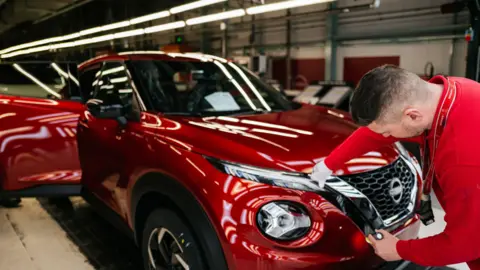Nissan Faces Major Layoffs and Restructuring Amid Industry Challenges
Nissan, one of Japan’s most recognized car manufacturers, is undergoing a significant transformation in response to tough global market conditions. This article explores the current changes at Nissan, including massive layoffs, shifts in production, and the strategies being deployed to steer the company through a challenging period.

Image: Nissan headquarters in Yokohama, Japan, capturing the reality of change. [Alt: Nissan headquarters amid corporate restructuring]
Nissan Announces Sweeping Global Layoffs
In a bold move to address declining profits and intense competition, Nissan has announced extensive layoffs impacting approximately 20,000 employees worldwide. According to CNN Business, the company is aiming for major cost reductions after reporting an 88% annual drop in profits. The new CEO, Ivan Espinosa, emphasized the urgent need for self-improvement and a shift away from focusing solely on sales volume.
These workforce reductions will affect both manufacturing and corporate staff. Two-thirds of the layoffs are expected from manufacturing jobs, as Nissan scales back its production plants from 17 to just 10 globally. More details on this move and its potential impact can be found in BBC News' coverage of Nissan's restructuring efforts.
Market Pressures and Competitive Landscape
Nissan’s difficulties are compounded by weak sales in crucial markets like the United States and China. Increased competition from electric vehicle manufacturers and changing consumer trends have forced Nissan to reconsider its strategies. The failed merger talks with Honda, once expected to create a significant automotive alliance, have further complicated Nissan’s recovery.
In China, Nissan has struggled to compete against domestic brands such as BYD, reflecting broader industry pressures. The ongoing tariff uncertainties in the US, coupled with inflation and rising interest rates, have also dampened vehicle sales and profitability. For a deeper look at how market forces are shaping Nissan’s current trajectory, read the full BBC analysis.
Restructuring for the Future
To adapt, Nissan is not only reducing its workforce but also shutting down seven manufacturing plants. The company aims to simplify its product lineup by reducing the complexity of parts by 70%. These measures are designed to improve efficiency and reposition Nissan to achieve profitability.
According to CNN Business, the company plans total cost savings of 500 billion yen compared to the previous financial year. However, analysts remain cautious. Many believe that a sudden turnaround may be unlikely given the challenging environment and recent financial losses.
Conclusion: The Road Ahead for Nissan
Nissan’s current overhaul highlights the intense pressures faced by traditional automakers in a rapidly changing global landscape. As it navigates layoffs, plant closures, and evolving market demands, Nissan’s future success will depend on its ability to innovate and adapt. Industry watchers and employees alike will be monitoring Nissan closely as it seeks to restore profitability and rebuild its brand reputation.
For ongoing updates and expert perspectives, explore additional coverage from reliable outlets like CNN Business and BBC News.